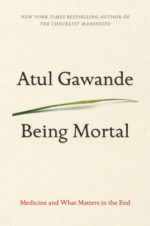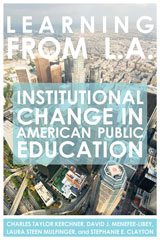In “Austerity” Mark Blyth Traces the History and Politics of a Dangerous Idea
Posted on | July 12, 2013 | Comments Off on In “Austerity” Mark Blyth Traces the History and Politics of a Dangerous Idea
Mark Blyth took a career detour to be a co-editor of The Transformation of Great American School Districts. So it was with great anticipation that I read his new book, Austerity. I recommend it to educators as a valuable corrective to the belief that boosting educational standards will increase the life chances of American students and create a rocketship economy. For teachers, school superintendents, and education policy wonks, this book is more about you than you may think it is.
Blyth considers austerity—the economic policy of the United States and Europe since 2003—a dangerous idea, and through tracing its history and effect he provides powerful evidence for that assertion. It slows, not grows the economy. But for poor and working class children the news is worse: they will pay for the economists’ fairy tales with high unemployment and reduced social mobility.
For Blyth this gets personal. Born and raised in relative poverty in Scotland, a welfare kid and proud of the fact, he is now a professor of political economy at Brown University, an extreme example of intergenerational mobility. “What made it possible for me to become the man I am today is the very thing now blamed for creating the crisis itself: the state, more specifically, the so-called runaway, bloated, paternalistic, out-of-control, welfare state. This claim doesn’t pass the sniff test.”
So, in addition to a keen mind and knowledge that ideas drive institutions, Blyth tackled the economics of voluntary deflation as a way of fulfilling the academic’s calling to be what Blyth calls “the Bul*l*hit police.” So, reader beware, heading into the history of austerity as public policy propels one into a *hit storm.
Austerity is supposed to inspire business confidence because government won’t be sucking up available capital to issue debt or adding to the payments to service existing debt. Voting for austerity is a vote for productive investment instead of waste, and government stimulus only gets in the way, according to the dominant economic thinking. To which Blyth replies, “There is just one slight problem with this rendition of events: it is completely and utterly wrong, and the policy of austerity is more often than not exactly the wrong thing to do precisely because it produces the very outcomes you are trying to avoid.”
Despite the intuitive attractiveness of the idea that you cannot cure debt with more debt, it is also true that we cannot grow when we are all trying to be austere at the same time. When that happens, as it is, individuals respond by taking a pay cut to keep their jobs, just as hundreds of thousands of teachers have in the United States. The first thing they do, of course, is cut consumption. They may also cut their personal debt by paying down credit card balances. That shrinks the economy again.
Blyth takes his readers through the American and European “too big to fail” banking crisis that converted private debts and massive business failures into government debt. In the case of Europe these became large enough that they continue to threaten both national economies and the continued existence of the Euro. “The greatest bait and switch in history,” Blyth calls it as he traces its history as an economic idea and how it has worked in practice. Not well.
What does this have to do with education policy? In two respects, a great deal. First, a slow national economy hammers state budgets for schools and colleges. In a very real way, it has been teachers and kids who have bailed out the bankers. For teachers, it’s furloughs and wage give backs. For college students it’s higher tuition and student debt.
Second, austerity kills the “education dream story,” the idea that if parents can get their children to work hard in school and persist through college social mobility will result. While it is still true that college graduation markedly increases the chances for employment and economic self-sufficiency, it’s also true that the prospects for this generation of college students is not as great as it was for their parents. College is a riskier investment than it used to be.
When the faith in education falters, youth find other ways forward. In Europe, the Middle East, and North Africa, unemployment rates among college educated young adults fuels political instability. Could something larger and more potent than the Occupy movement take place in America? A glance at countries as diverse as Brazil, Egypt, and Sweden suggests that it could. Austerity could crash the very institutions it was intended to perpetuate.
* * *
Mayor’s pledge to boost summer jobs illustrates the possibility of city government and its limits. New Los Angeles Mayor Eric Garcetti has pledged to boost summer jobs for youth. It’s the right move. The city was able to provide fewer than 4,000 jobs last summer. But it also shows how limited this or any mayor is in wrenching the economy. City governments, unlike the national government, have to balance their books, and during hard or show economic times have no choice but to be austere.
* * *
See a review of Austerity by Paul Krugman in the New York Review of Books, by Lawrence Summers in the Financial Times, and links to other reviews from the Watson Institute at Brown.
Tags: Austerity > Mark Blyth




